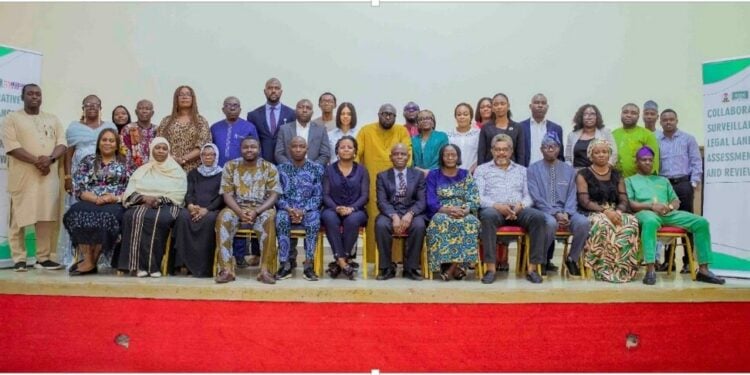The Nigeria Centre for Disease Control and Prevention (NCDC) has partnered with Resolve to Save Lives (RTSL), a global health organisation, to review and strengthen the country’s legal and regulatory frameworks for public health data governance.
The four-day stakeholders meeting in Keffi, Nasarawa State, aimed to strengthen collaborative surveillance systems and ensure the timely and secure sharing of public health data across federal and state levels.
At the event, NCDC legal adviser, Safiya Musa, stressed that data governance is key to outbreak response. “Legal instruments that support data governance are essential for effective epidemic preparedness and response. This workshop is an important step towards building a system that allows for the timely sharing of surveillance data while protecting privacy and ensuring security,” she said.
From Resolve to Save Lives, Dr Rabi Usman, senior technical advisor for health security and event-based surveillance, highlighted the life-saving potential of coordinated data use.
“Clear legal frameworks that enable secure, timely, and coordinated multisectoral data sharing are critical for preventing epidemics and protecting lives.
Data saves lives when it is shared and used effectively, and that’s why we are supporting the government to strengthen data governance as part of our collaborative surveillance initiative,” she noted.
Senior Legal Advisor at RTSL, Emem Udoh, underscored the importance of overcoming barriers to data sharing. “Overcoming obstacles to public health data sharing is critical to strengthening Nigeria’s surveillance system, and clear legal instruments are essential for ensuring this is done efficiently and ethically.
“This meeting offers stakeholders the chance to address challenges and agree on the most effective framework for collaborative surveillance.
The meeting included representatives from health-related ministries, departments, and agencies, particularly those responsible for legal affairs, ICT, surveillance, data protection, and planning.
Key outcomes from the meeting include a draft review of existing legal instruments, identification of gaps affecting interagency collaboration, and recommendations that will guide long-term reforms to Nigeria’s public health legal framework.
These reforms are expected to strengthen the country’s ability to responsibly collect, analyse, and share surveillance data, ensuring that information drives timely action against current and future health threats.



